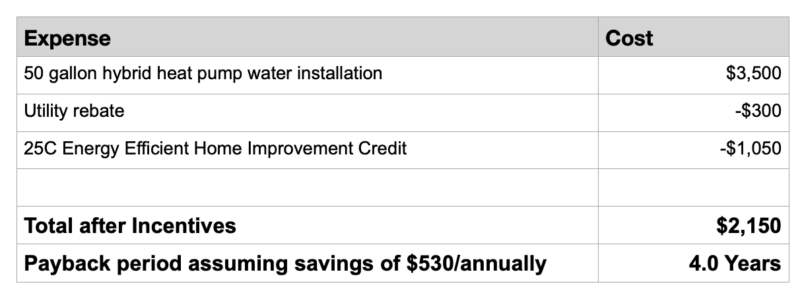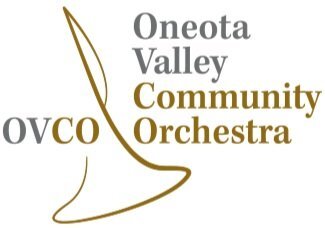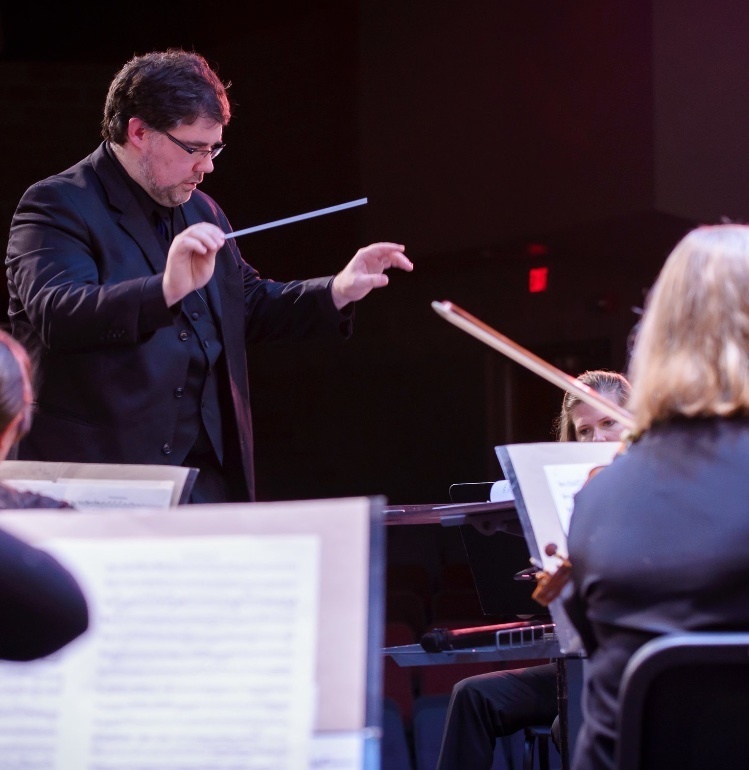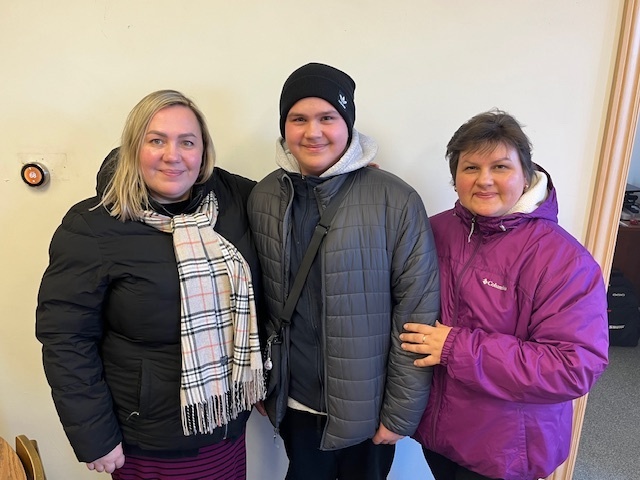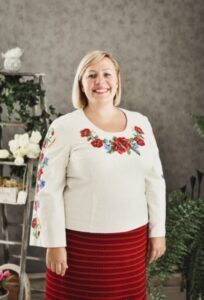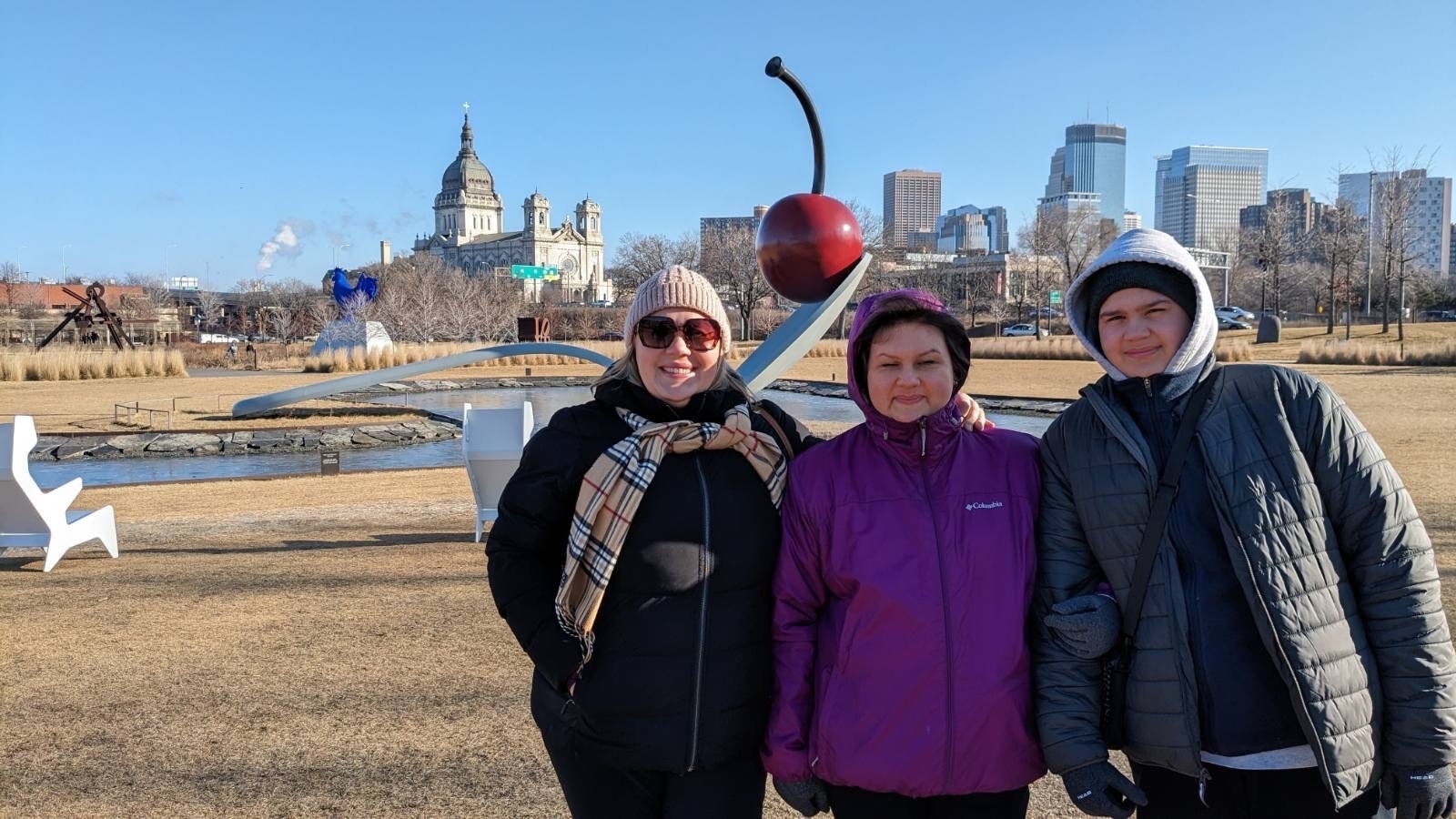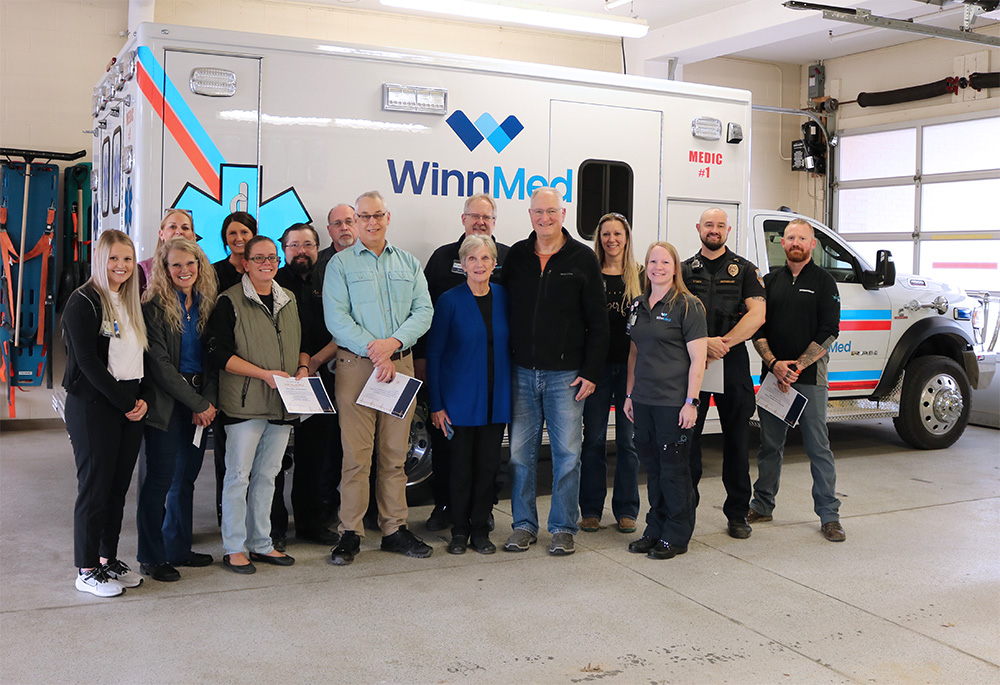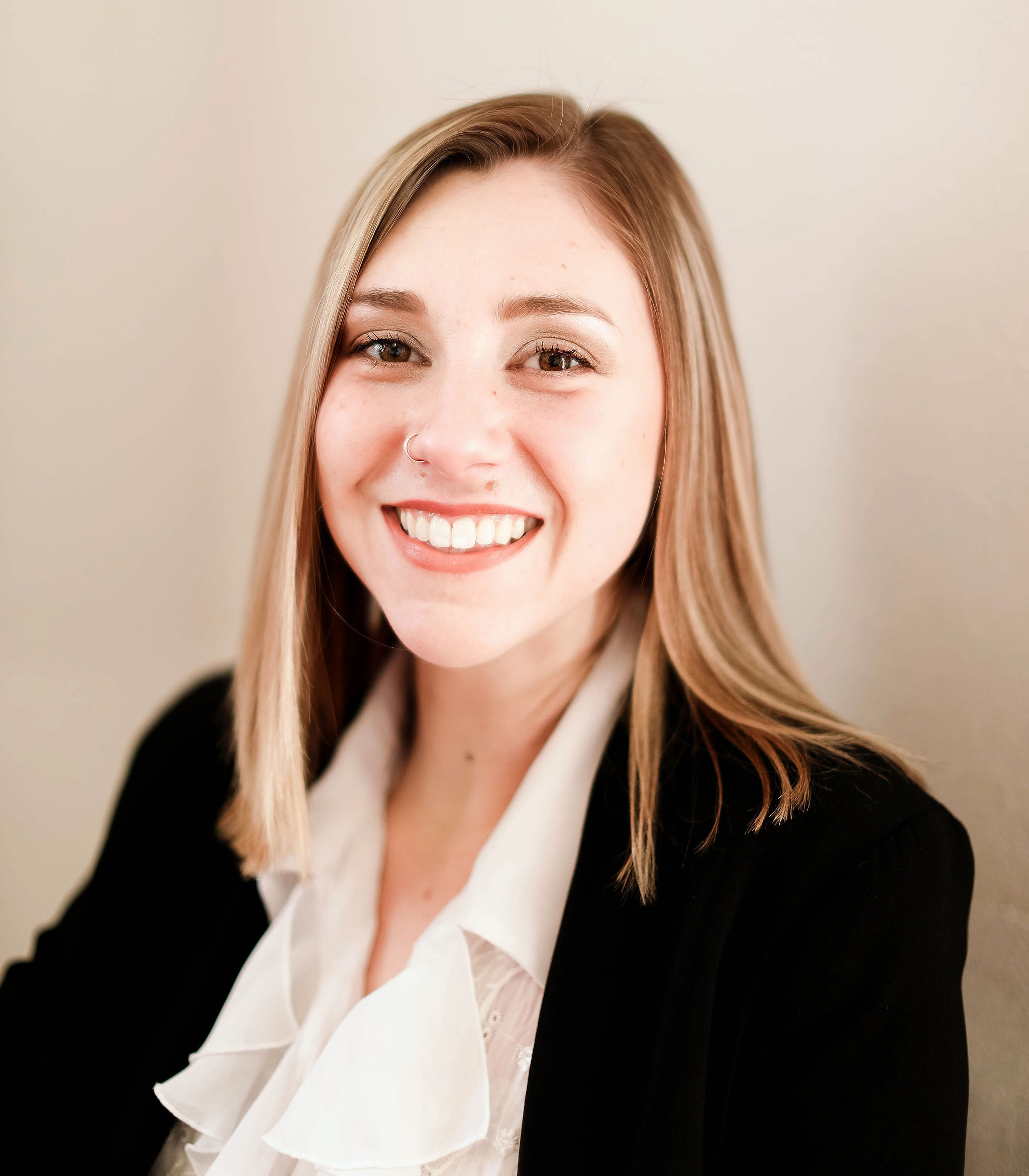Decorah’s Kim and Mary Glock recently upgraded their 50-gallon electric resistance water heater to an electric hybrid heat pump water heater, resulting in energy savings of about $650 annually. Follow along as we outline their journey.
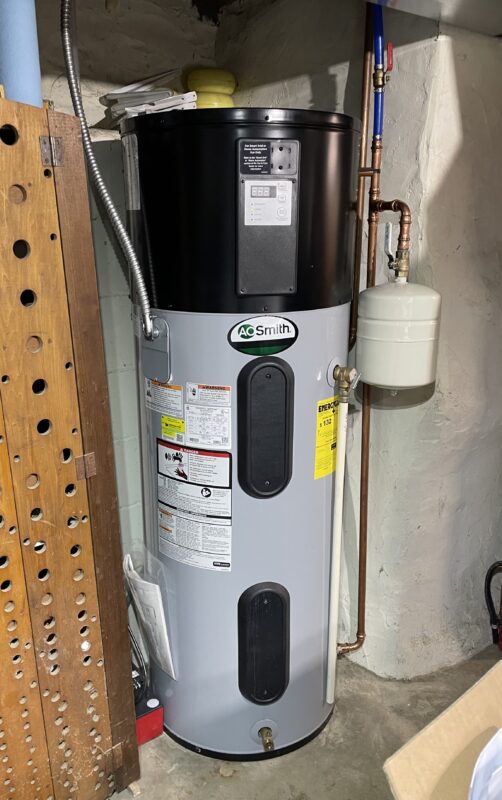
The Glock’s new 50-gallon AO Smith hybrid heat pump water, installed for $3,400 before incentives
Water heating accounts for nearly 18% of energy use within the typical home, second only to space heating. The cost of heating all that water varies greatly depending on the type of fuel used. For example, the annual operating cost of a natural gas water heater is about $240, whereas an electric water heater costs about $650 a year. Having been in dozens, if not hundreds of area basements, I can tell you there are a lot of electric water heaters out there. Unfortunately, many new houses are still being built with electric resistance versions because the equipment is less expensive to install but they are far and away more expensive to operate.
Enter the hybrid heat pump water heater. Heat pump water heaters utilize an air source heat pump paired with a conventional electric resistance element for when the heat pump can’t meet demand. Physically, a heat pump version is not any different than a regular water heater, except that compared to some “lowboy” and short versions, they’re a bit taller. In addition, they require condensate management because, as the heat pump operates, it produces condensate that must be gravity-drained or transferred with a condensate pump. Compared to a traditional electric water heater, however, they’re about 300% efficient, or in other words, use about 1/3 of the electricity.
RMI recently released a state-by-state analysis of the lifetime emissions of heat pumps for both space and water heating. They estimate that installing a heat pump water heater yields total lifetime emissions reductions of 75% compared to a gas version.
In my conversations with Kim and Mary Glock in preparation for this piece, they reiterated over and over the operational savings. According to Kim, “We’ve tried to do what we think is right…by replacing lighting with LEDs and appliances with Energy Star versions. But to be entirely honest, in doing those things we’ve really never noticed any electric bill savings, except for the water heater. We installed it, and by the next month our household kWh usage was cut in half.” Granted, savings probably aren’t that dramatic for most families, but for a household of two that is otherwise frugal, the savings can be dramatic.
Nevertheless, there are a few drawbacks to consider. First, since the tank and heat pump are contained in the same unit, it needs to be placed in a space volumetrically large enough to draw heat. The specifications vary by manufacturer but, generally speaking, the room the water heater sits in should be larger than a broom closet, and ideally in the same space as a furnace or boiler. Rheem recommends a space no less than 7’x10’x10’ in dimensions, but other manufacturers have requirements that are about half that. If those space constraints can’t be met, and all that’s available is a tiny water heater closet, consider adding a closet door with air louver vents.
Secondly, since heat pump water heaters heat water by utilizing energy contained within the indoor ambient air, they shouldn’t be installed in fully unconditioned (cold) basements. Minimum ambient operating temperature cutouts for the heat pump vary by manufacturer, but generally the heat pump will stop working if the air around it drops below 37-40°F. So, if you’re like me with a cold and poorly insulated basement, or currently have your water heater in the garage, a heat pump version might not be for you. If temperatures drop below the manufacturer-specified heat pump cutout, the water heater will continue to function, but only with the integrated electric resistance element, resulting in operational efficiencies on par with a conventional electric water heater.
Given available rebates and tax incentives, heat pump water heaters can make a lot of sense. Generally speaking, if switching from an existing electric water heater to a heat pump version, you might expect to spend $3,500 on a replacement. If you’re switching from natural gas, expect to spend $3,500 plus the additional cost of running a 30A-240V power supply, which likely increases the total installed cost to around $4,000. Factoring in available incentives, a heat pump hot water heater costs on par or slightly less than the gas alternative, and that’s even before factoring in energy savings over time.
The new 25C Energy Efficient Home Improvement Credit allows homeowners to deduct 30% of project costs up to $2,000 for the installation of heat pumps for space and water heating. Local utility rebates vary, but generally are available from $225 to $300 per unit. And beginning late this year or early next year, the federal Home Electrification and Appliance Rebate, as part of the two-year-old Inflation Reduction Act, will potentially provide up to $1,750 off the installed cost. With the new rebate program, many households will be able to switch to heat pump versions at little or no cost.
Below is an example analysis of installing a heat pump water heater, not accounting for the soon-to-be IRA rebate, which might sweeten the pot by an additional $1,750.
